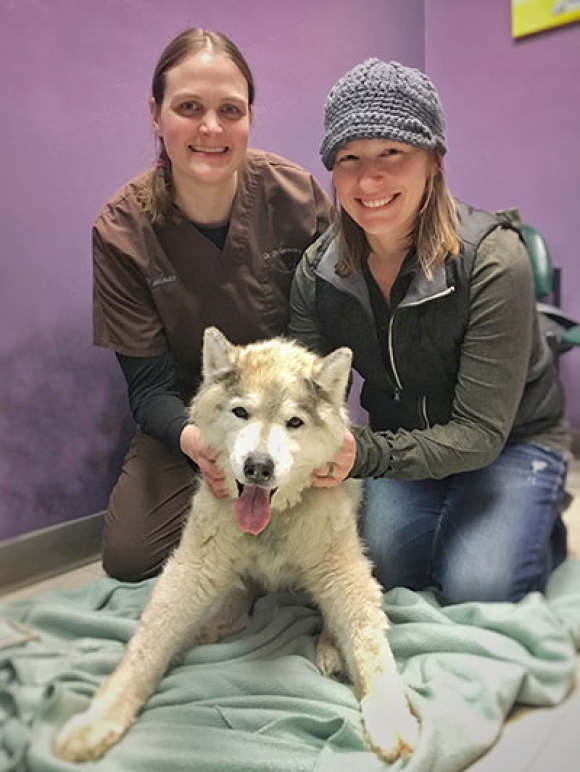


SERVICES
Senior Wellness Care
 As pets age, their basic needs may change. Our goal at Packerland is to provide the support your pet needs to maintain a healthy, active life into their twilight years. On average, pets are considered "senior" around seven years of age, although species, breed and size will all play a role. Because pets age twice as fast as people and senior pets are more likely to have significant health changes, we recommend twice yearly preventative exams. The goal of these visits is to catch health issues early, allowing us better opportunity to treat underlying problems before they become a bigger concern. Early intervention leads to decreased pain, better quality of life and longer life expectancy overall which is always our goal!
As pets age, their basic needs may change. Our goal at Packerland is to provide the support your pet needs to maintain a healthy, active life into their twilight years. On average, pets are considered "senior" around seven years of age, although species, breed and size will all play a role. Because pets age twice as fast as people and senior pets are more likely to have significant health changes, we recommend twice yearly preventative exams. The goal of these visits is to catch health issues early, allowing us better opportunity to treat underlying problems before they become a bigger concern. Early intervention leads to decreased pain, better quality of life and longer life expectancy overall which is always our goal!While all pets should have annual bloodwork, it is of the utmost importance in our senior patients. Establishing a baseline of bloodwork is helpful for tracking subtle changes over time as changes in bloodwork can be indicative of larger issues. In addition to standard bloodwork, there may be other tests recommended, such as urinalysis, thyroid testing and radiographs.
Age-Related Considerations
While aging is not a disease, it does come with a progression of changes, many of which we can help with. Pets often instinctively hide illness or show pain in different ways than we may expect. We don't want our pets to live in pain, but if we miss their subtle symptoms, they may suffer unnecessarily. Keeping a close eye on your pet's routine and daily interactions and reporting any changes to your veterinarian can help us pinpoint areas where we can assist in making sure your aging pet's quality of life is maximized.Common Issues that should be addressed:
- Changes in appetite (increased or decreased)
- Changes in drinking habits, particularly increased thirst
- Difficulty getting around, lameness
- Restlessness, confusion
- Increased urination or "accidents"
- Changes in bowel movements
Things YOU can do to help your senior pet
- Monitor to pet closely. Avoid "free-feeding" as it may make it more difficult to determine when subtle appetite changes appear. Watch activity level, interactions with people and other pets and urination/defecation habits.
- Keeping up with regular preventative exams with your pet's veterinarian including senior bloodwork screening for early detection of disease. This allows us to catch something while it may be easier to treat and before it becomes a bigger problem.
- Keep at (or get your pet down to) a healthy weight! Extra weight pre-disposes pets to additional health concerns and is much more difficult on aging joints.
- Good nutrition. Seniors have specific needs which are not the same as a puppy/kitten or adult. Talk to us if you have questions.
- Keep your pet active! Regular, moderate exercise will help prevent muscle loss and keep pets feeling good. Avoid jarring or intense activity and be sure they are comfortable (discuss medications as needed).
- Keep up on dental care! Dental disease affects other organs in the body and can shorten overall life span! Having a healthy mouth keeps pets more comfortable and adds to their overall quality of life as they age.
- Make accommodations as needed. Senior pets may require things like thicker, softer bedding, ramps or non-slip rugs to keep them comfortable and confident as they age.
- Pain Management! The majority of seniors have some degree of arthritis. If your pet is stiff, has trouble getting around, no longer jumps up or limps, they are in PAIN! There are many options from daily joint chewable supplements, foods, NSAIDs and other medications to PRP and Stem Cell Therapy that we can recommend to keep your pet happy and comfortable.



